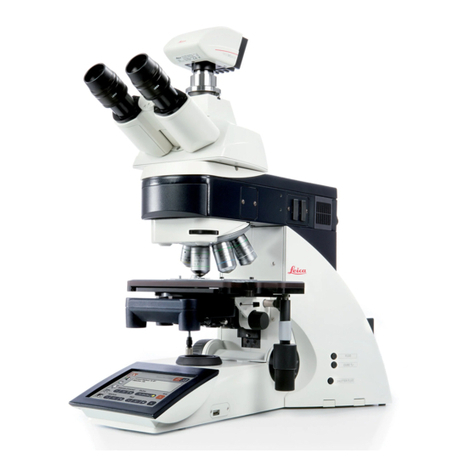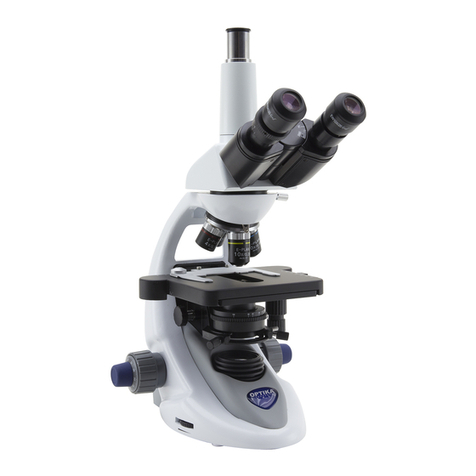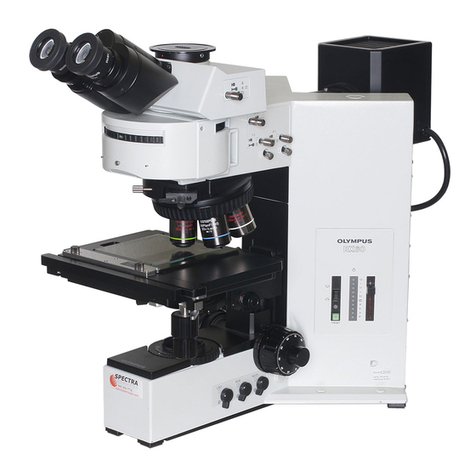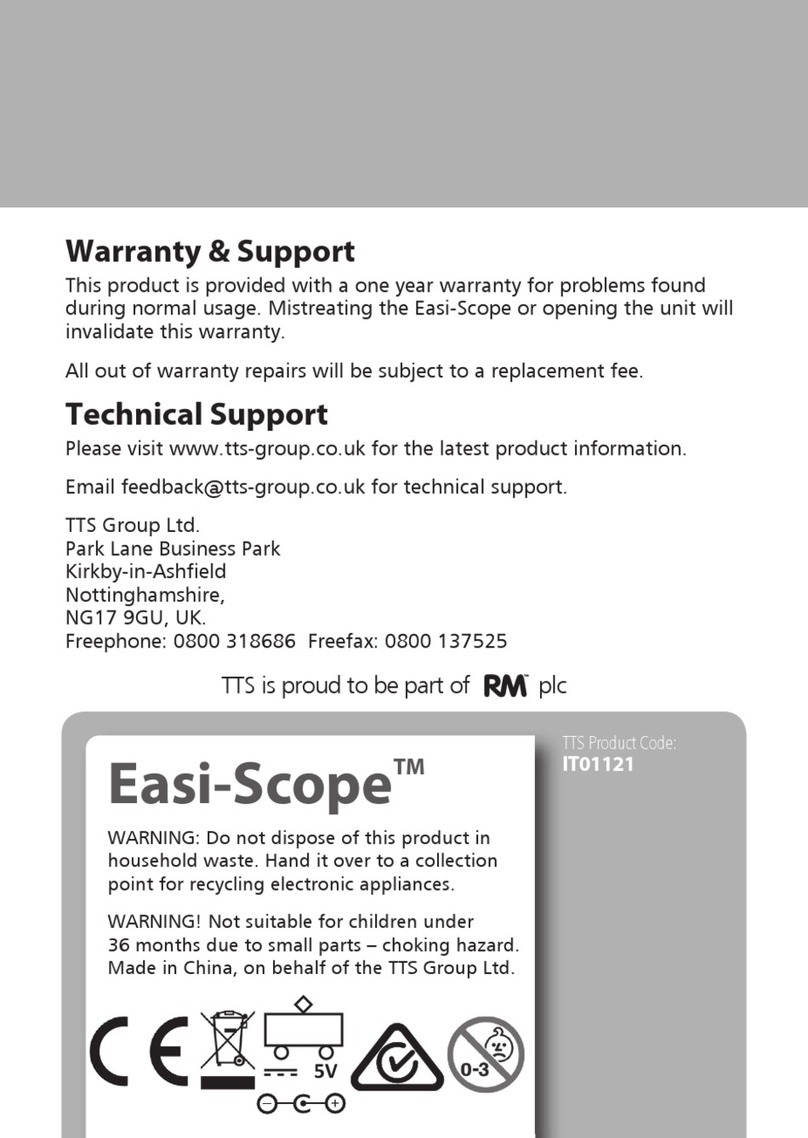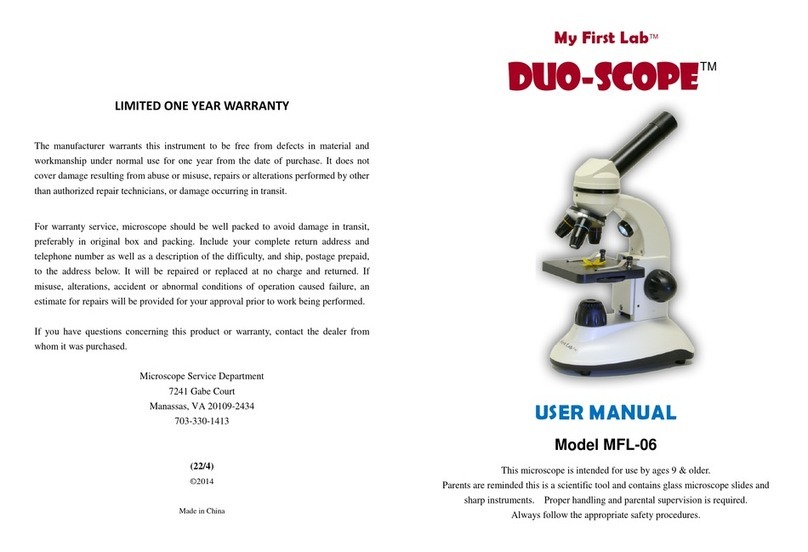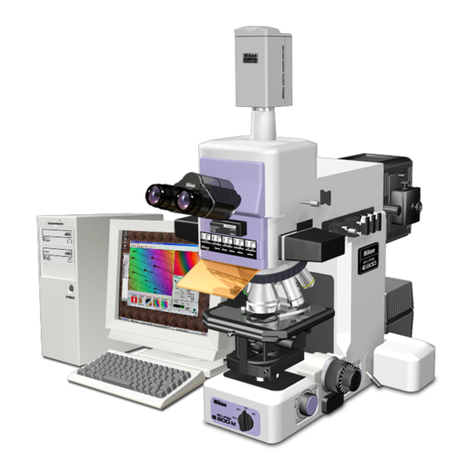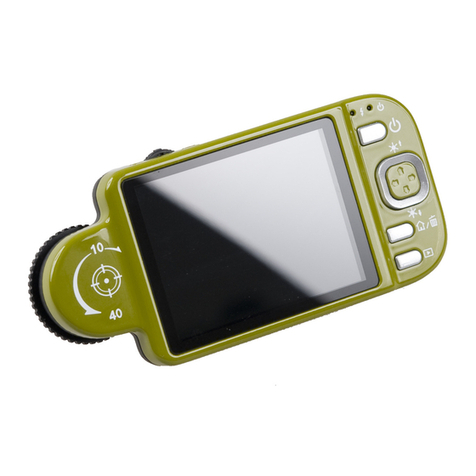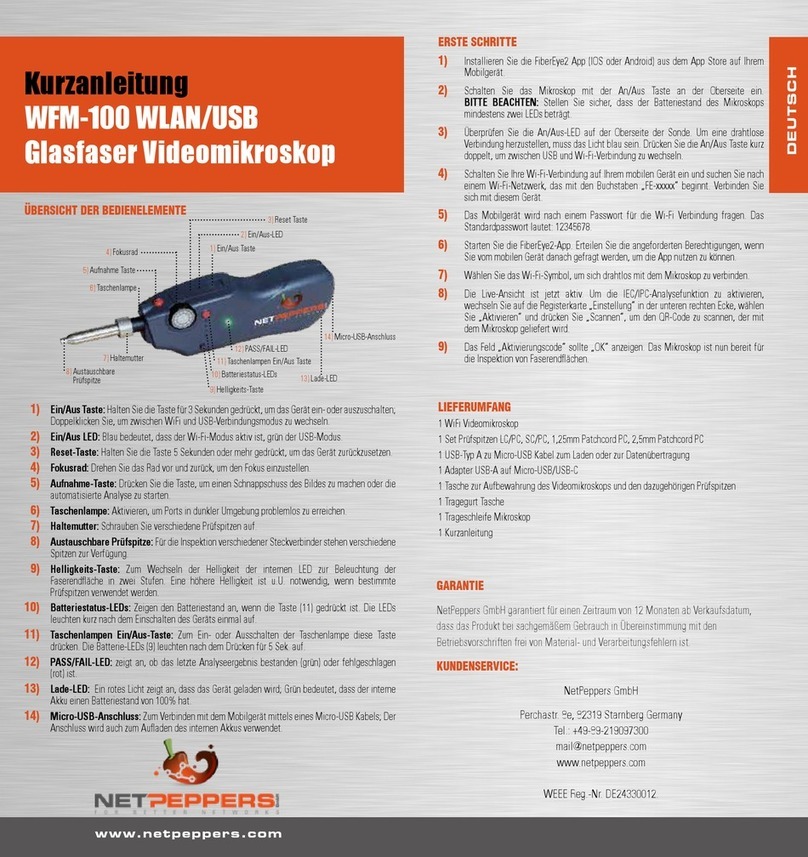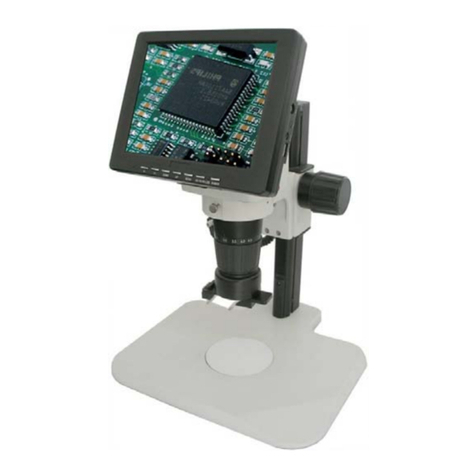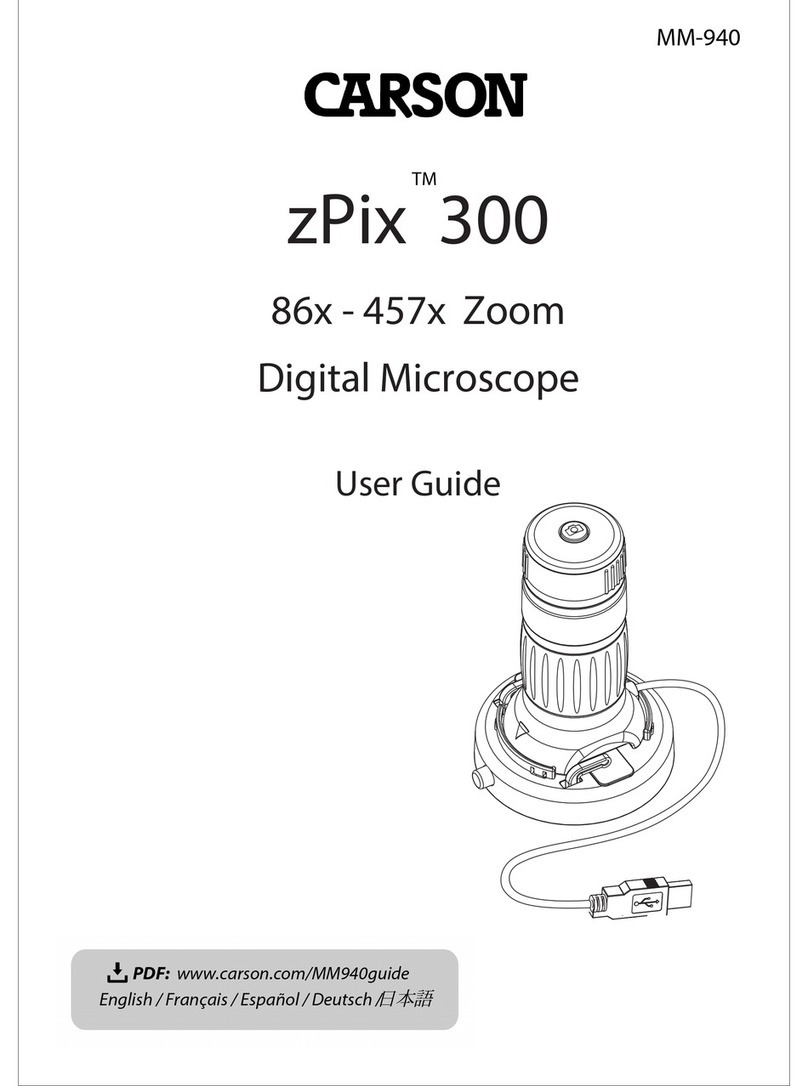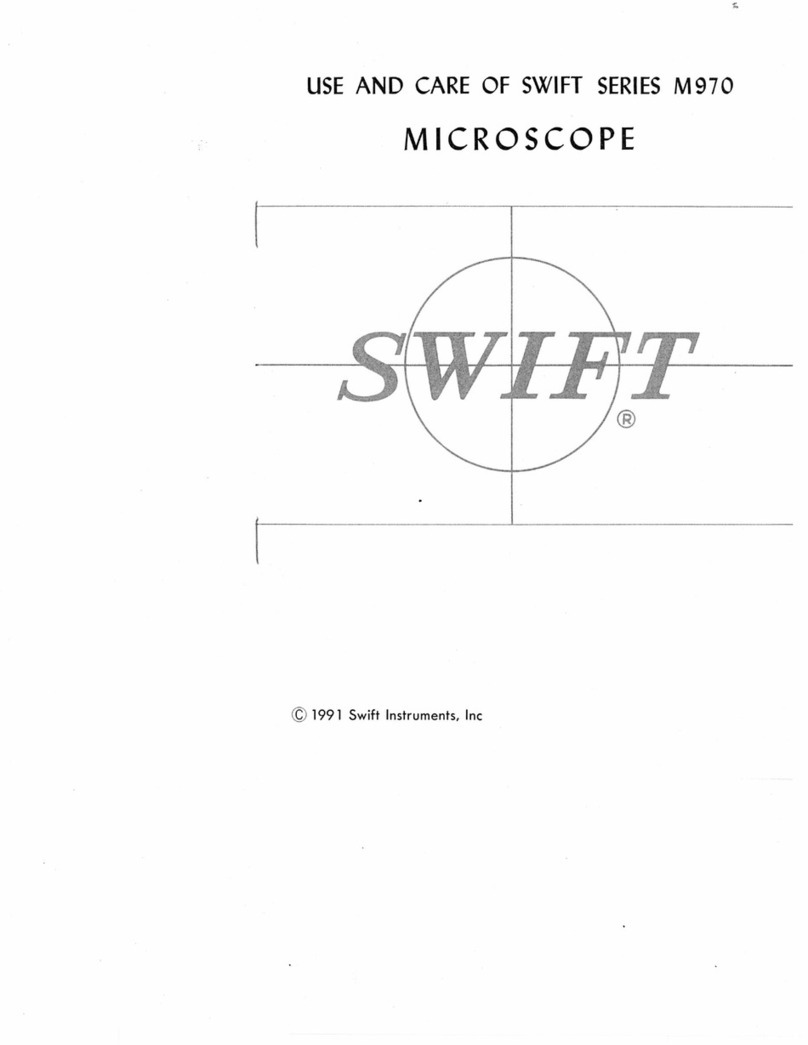Discovery Telecom 4450101 User manual

8+
AGES
INSTRUCTION MANUAL
CHOKING HAZARD
— Small parts.
Not for children under 3 years.
WARNING:
FUNCTIONAL SHARP POINT
— Not for children
under 3 years.
WARNING:
Biological Experiments Gear
900x
Power Microscope
900x
Power Microscope
NOT INCLUDED
X
2
1.5V
Do not mix old and new batteries. Do not mix alkaline,
standard (carbon-zinc), or rechargeable (ni-cad, ni-mh, etc.) batteries.

*Not suitable for children under 3 years of age. Contains functional sharp points. 2
CONTENTS
Microscope Parts:
1. Eyepiece
2. Focus Knob
3. Stage
4. Metal Stage Clips
5. Colour Filter Wheel
6. Objective
7. Objective Turret
(5x, 20x, 45x)
8. Illumination On/Off Switch and Mirror
9. Rubber Base and Battery Case
10. Microscope Arm
Additional Contents:
11. (5) Prepared Slides and (7) Blank Slides with
Slide Case
12. (8) Slide Covers/Labels
13. (3) Collection Vials
14. Test Tube
15. Petri Dish
16. Tweezers / Scalpel / Pipette / Stirring Rod /
Spatula*

3
CONTENTS

4
How Do I Use My Microscope
Before you use your microscope, make sure that the table, desk or surface that
you place it on is stable and is not subject to vibration. If the microscope needs
to be moved, hold it by the arm and base while carefully transferring it. Once
the microscope is in a suitable location and the batteries are installed, check
the light source to make sure that it illuminates. Use a microfiber cleaning
cloth to gently wipe the lenses off. If the stage is dirty with dust or oil, carefully
clean it off. Make sure that you only raise and lower the stage using the focus
adjustment knob.
How Do I Operate The Illumation?
Locate the mirror/light on the base of the microscope. Flip the mirror/light
to the “on” position (with the light facing up) and the light will illuminate.
This microscope is equipped with an incandescent light that illuminates the
specimen from below. The colour filter wheel is located in the middle of the
microscope stage. The filters help you when you observing very bright or clear
specimens. Using these filters, you can choose various brightness levels and
colours. This helps you better recognize the components of colourless or
transparent objects (e.g. sea salt).
How Do I Adjust My Microscope Correctly?
Place the microscope in a suitable location as described above, and sit in a
comfortable viewing position. Always start each observation with the lowest
magnification. Adjust the distance of the microscope stage so that the stage is
in the lowest position — farthest away from the turret head. Turn the objective
turret until it clicks into place at the lowest magnification (Objective: 5x/
Magnification: 100x). Note: Before you change the objective setting, always
make sure the microscope stage is farthest away from the turret by rotating
the focus knob. Separating the stage and turret by rotating the focus knob will
avoid causing damage to the specimen slide or microscope. When starting an
observation, always start with the 5x objective in the rotating head.

5
Did You Know?
The highest
magnification is
not always the
best for every
specimen!
Microscope Parts:
1. Eyepiece
2. Focus Knob
3. Stage
4. Metal Stage Clips
5. Colour Filter Wheel
6. Objective
7. Objective Turret
(5x, 20x, 45x)
8. Illumination On/Off
Switch and Mirror
9. Rubber Base and
Battery Case
10. Microscope Arm
Additional Contents:
11. (5) Prepared Slides and
(7) Blank Slides with
Slide Case
12. (8) Slide Covers/Labels
13. (3) Collection Vials
14. Test Tube
15. Petri Dish
16. Tweezers / Scalpel /
Pipette / Stirring Rod /
Spatula*
* Not suitable for children under 3 years of age. Contains functional sharp points.
Troubleshooting Guide:
No recognizable image Turn on light, Readjust focus,
Start with the lowest power objective (5x)
No image Centre object on slide under
lowest power objective
No light Replace batteries, Check on/off position

6
How Do I Observe The Specimen?
Sitting in your location with adequate
illumination chosen from the colour filter
wheel, the following basic rules should be
observed. Start with a simple observation at
the lowest magnification. Position the object
or specimen in the middle of the stage under
the stage clips, centreed over the lower light.
Focus the image by rotating the focus knob
until a clear image appears in the eyepiece.
Place the prepared slide directly under the objective on the microscope stage
and secure it with the stage clips. The prepared slide should be located directly
over the lower illumination. Look through the eyepiece and carefully turn the
focus knob until the image appears clear and sharp. Now you can select a
higher magnification by rotating to the 15x/300x objective turret. Higher levels of
magnification can be achieved by turning the objective turret to a higher setting
(300x or 900x). Following this procedure creates a steady increase of magnification
without overpowering the view of the object. The following magnification order
should be used: 100x, 300x then 900x. Each time the magnification changes (due
to the objective change), the image sharpness must be readjusted with the focus
knob. When doing this, be careful because if you move the microscope stage too
quickly, the objective and the slide could come into contact and cause damage to
the slide or microscope.
For transparent objects (e.g. sea salt), light is projected by the lower light traveling
from below the stage, through the objective and eyepiece, and finally into your eye.
This process of light transmission is known as microscopy. Many micro-organisms
found in water, plant components and the smallest animal parts are transparent
in nature. Opaque specimens, on the other hand, will need to be prepared for
viewing. Opaque specimens can be made transparent by a process of treatment
and penetration with the correct materials (media), or by slicing. You can read
more about creating specimens in the enclosed microscope experiments booklet.
Magnification Guide:
20x 5x 100x
20x 20x 400x
20x 45x 900x

7
SAFETY WARNINGS
• This microscope set is
intended for children
older than age 8. Children
should only use this device
under adult supervision.
Never leave a child
unsupervised with this
device. Accessories in the
experiment kit may have
sharp edges and tips.
Please store the device
and all of its accessories
and aids out of the
reach of young children
when not being used
due to a risk of injury.
• Chemicals: Any chemicals
and liquids used in
conjunction with the device
should be kept out of
reach of children. Do not
drink any of the chemicals
contained in this set.
Hands should be washed
thoroughly under running
water after working with
these chemicals. In case
of accidental contact
with eyes or mouth,
rinse the affected area
with water. Seek medical
treatment for ailments
arising from contact with
the chemical substance,
and take the chemicals
with you to the doctor.
• Choking hazard: Children
should only use device
under adult supervision.
Keep packaging materials
like plastic bags and rubber
bands out of the reach of
children as these materials
pose a choking hazard.
• Battery guidelines: This
device contains electronic
components that are
powered by batteries.
Batteries should be kept
out of children’s reach.
When inserting batteries,
please ensure the polarity is
correct. Insert the batteries
according to the displayed
+/- information. Never
mix old and new batteries.
Replace all batteries at
the same time. Never mix
alkaline, standard carbon-
zinc and rechargeable
nickel-cadmium batteries.
Never short circuit the
device or batteries or throw
either into a fire. Leaking
or damaged batteries can
cause injury if they come
into contact with the skin.
If you need to handle such
batteries, please wear
suitable safety gloves.
Remove batteries from the
product before extended
storage to prevent leaking.
Do not immerse the battery
compartment in water.
• Risk of fire: Do not place
device, particularly the
lenses, in direct sunlight.
The concentration of light
rays could cause a fire.
• Do not disassemble this
device. In the event of a
defect, please contact
your dealer. The dealer
will contact the Customer
Service Department and
can send the device in to
be repaired if necessary.
• Do not subject the
device to temperatures
exceeding 60° C (140° F).
• Disposal: Keep packaging
materials, like plastic bags
and rubber bands, away
from children as they a
pose a risk of suffocation.
Dispose of packaging
materials as legally
required. Consult the local
authority on the matter
if necessary and recycle
materials when possible.
Read and follow the instructions, safety rules, and first aid information.

©2017 Discovery Communications, LLC. Discovery™ and the Discovery™ logo are
trademarks of Discovery Communications, LLC, used under license.
All rights reserved. discoverykids.com
©2017 Explore Scientific, LLC, a Journey North Company.
1010 S. 48th Street, Springdale AR 72762
All rights reserved. explorescientificusa.com | exploreone.com | 866.252.3811
Made in China
CONFORMS TO THE SAFETY REQUIREMENTS OF ASTM F963
This manual suits for next models
2
Table of contents
Other Discovery Telecom Microscope manuals
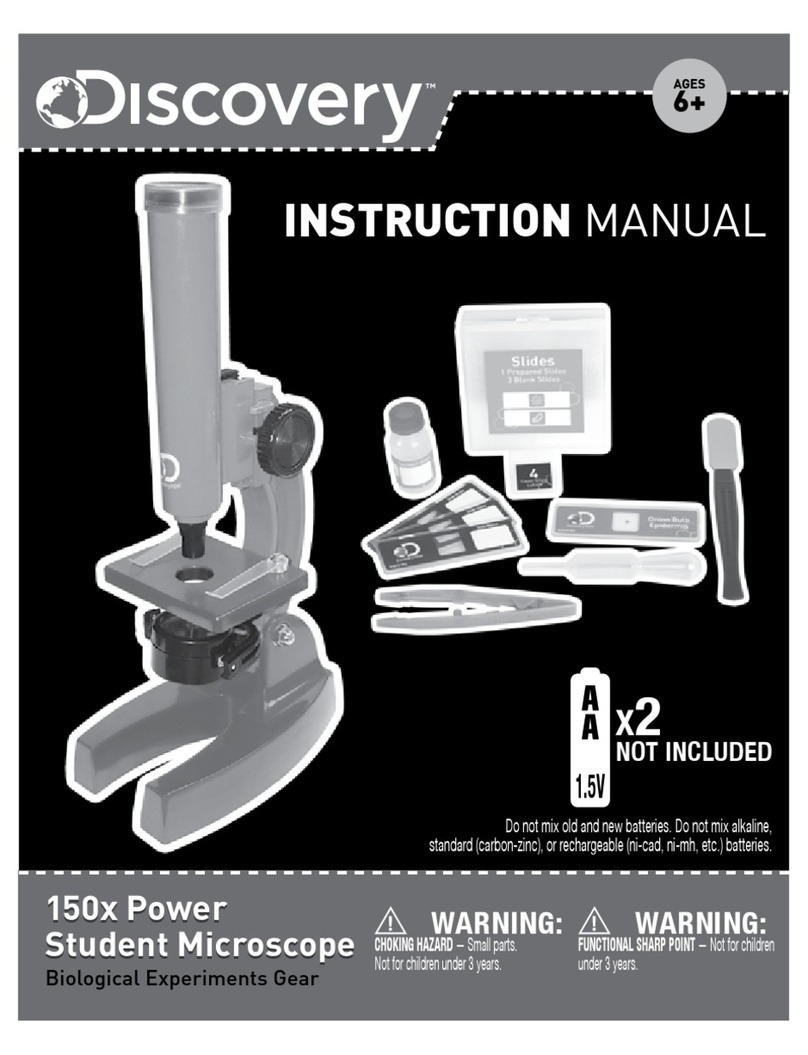
Discovery Telecom
Discovery Telecom 4400150 User manual
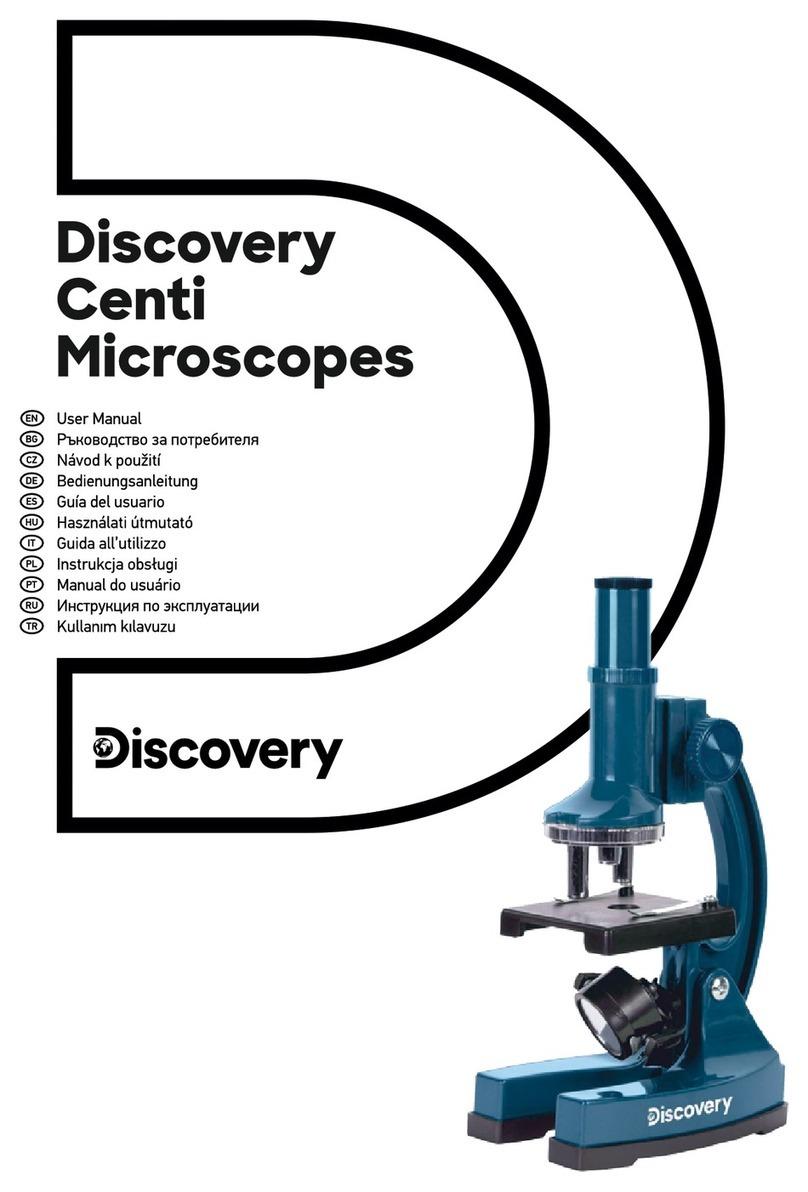
Discovery Telecom
Discovery Telecom Centi 01 User manual
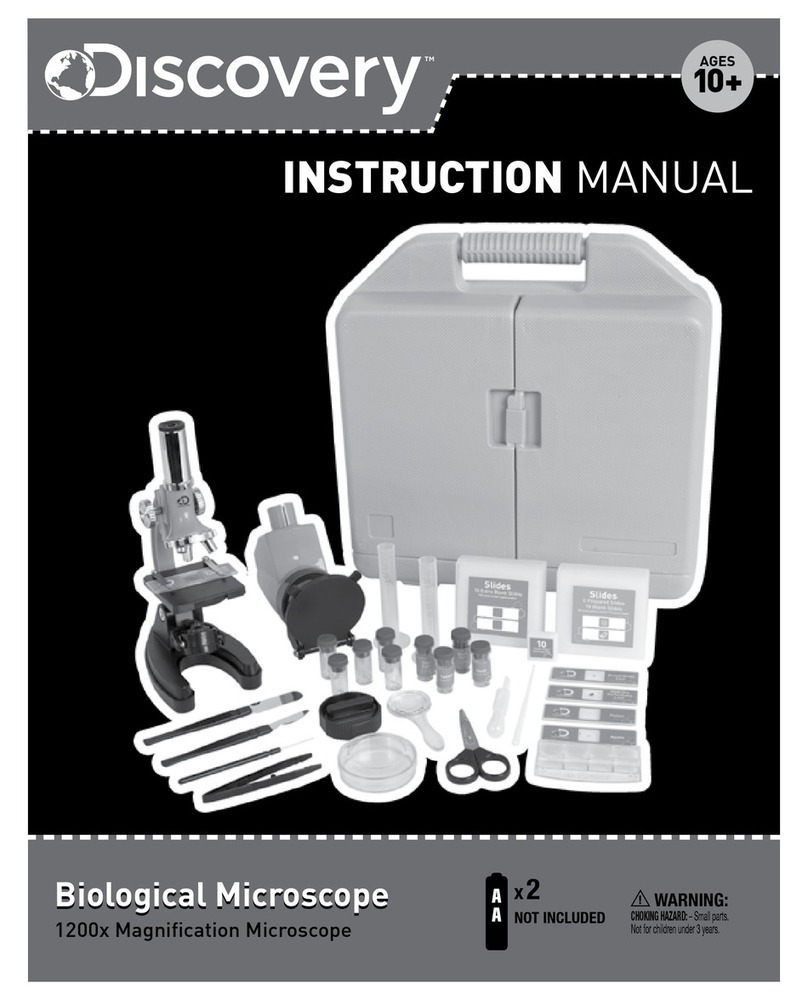
Discovery Telecom
Discovery Telecom Biological Microscope User manual
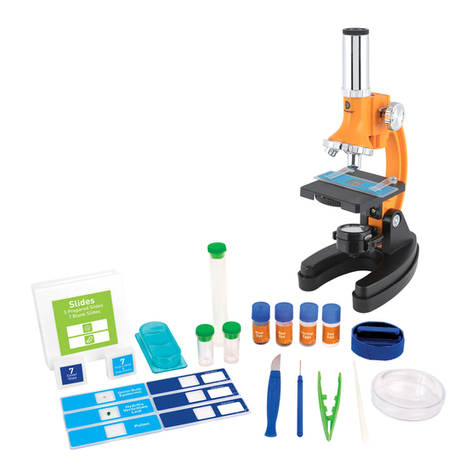
Discovery Telecom
Discovery Telecom 900x User manual
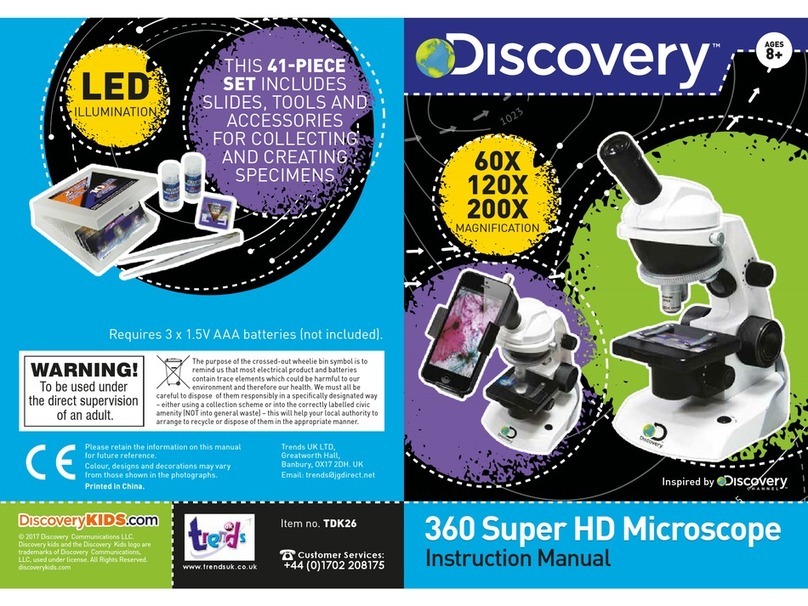
Discovery Telecom
Discovery Telecom TDK26 User manual
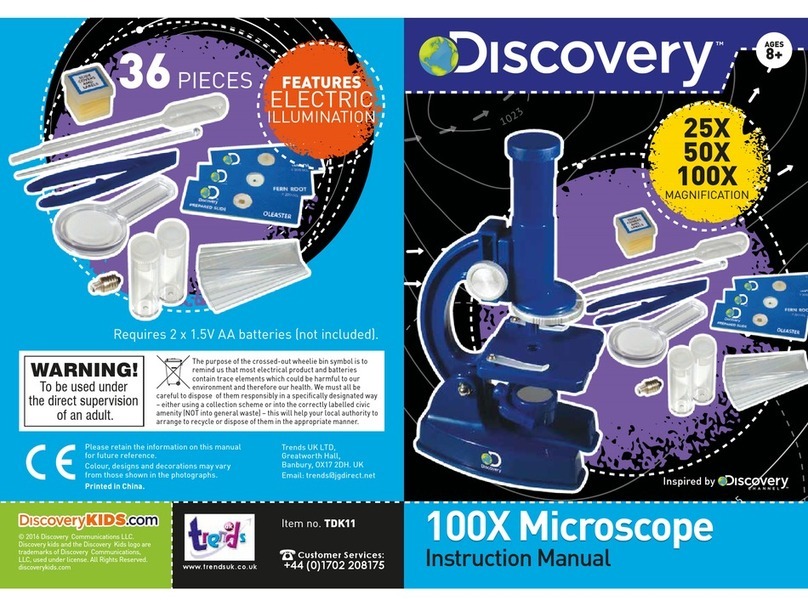
Discovery Telecom
Discovery Telecom TDK11 User manual
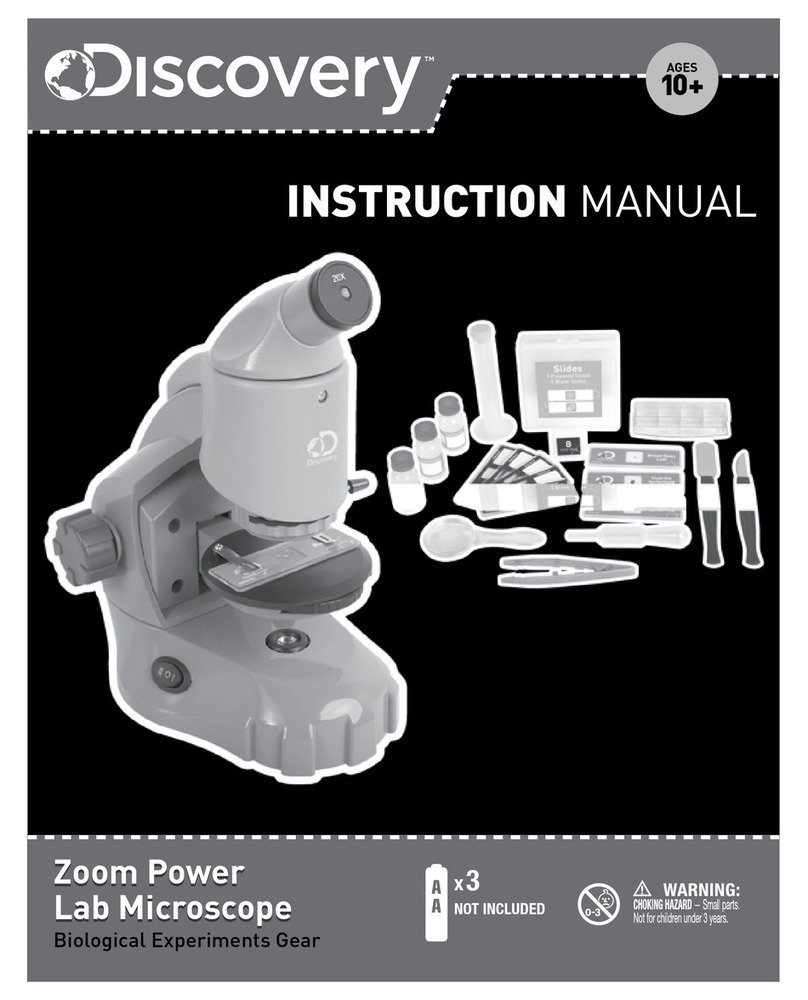
Discovery Telecom
Discovery Telecom Zoom Power Lab Microscope User manual

